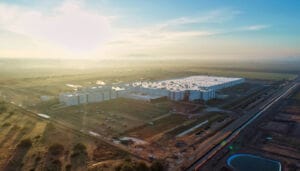This morning, the Eller College of Management hosted its annual Breakfast with the Economists presented by JP Morgan Chase. Held at the Westin La Paloma Resort, the event featured keynote speakers George W. Hammond, PhD, research professor and director of the Eller Economic and Business Research Center, and Anthony Chan, former chief economist at JPMorgan Chase, and the economists offered their view of the Arizona economy right now.
Below are key takeaways shared by Hammond and Chan during the event:
LOCAL NEWS: 100 best places to work and live in Arizona for 2025
INDUSTRY INSIGHTS: Want more news like this? Get our free newsletter here
Jobs, labor and unemployment
• State job growth was revised down significantly last year, matching the national pace.
• The state labor market remained tight, with relatively low unemployment and low labor market churn. Month-over-month job growth so far this year has been solid.
• State job growth slowed from 2.8% in 2023 to just 1.3% in 2024, matching the national average.
• The composition of Arizona job growth last year was strongly weighted toward private education and health services; construction; government; and leisure and hospitality. Those gains were partially offset by losses in professional and business services; financial activities; and information.
• In particular, the Tucson MSA added 1,700 jobs in private education and health services, with smaller gains across construction; government; manufacturing; natural resources and mining; and other services.
Housing
• Housing affordability remains a challenge, both nationally and across Arizona.
• Housing permit activity started the year very slowly, but did pick up some momentum in the latest data.
• Phoenix and Tucson home prices continued to increase in the first quarter but weakened modestly in April.
• The Phoenix median sale price fell 1.1% over the year to $445,000 in April while the Phoenix Case-Shiller index rose 2.3% over the year in February (latest data). The Tucson median sale price hit $368,000 in April, down 1.6% over the year.
• Housing permit activity was roughly stable last year in the Tucson MSA, according to Census data. However, permits were up strongly for single-family units, while activity declined for multi-family units.
Overall outlook
• Arizona posted surprisingly slow economic growth in 2024 and is on course for similar performance in 2025.
• The outlook for the U.S. and Arizona is unusually uncertain, given the significantly increased policy uncertainty created by the current federal administration through its handling of tariffs, mass deportations and cuts to federal spending. The risk of an economic downturn is elevated.
• However, if the U.S. economy avoids recession this year, the forecast calls for Arizona jobs to rebound from two years of subpar growth with more normal gains next year.
• Health care jobs are expected to lead growth in the near term.
• Personal income, nominal taxable sales and population are forecast to increase in 2025, but at a slow pace.
• Arizona, Phoenix and Tucson economies are forecast to return to more normal rates of growth next year.




